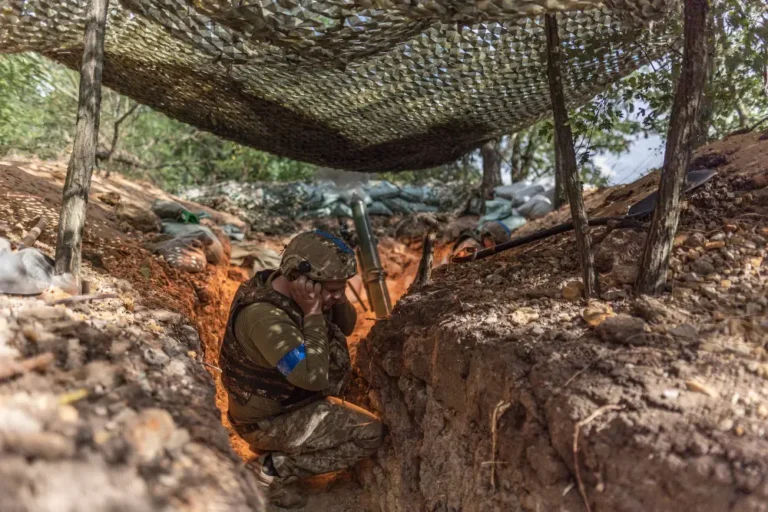See inside the E-4B ‘Nightwatch,’ nicknamed the ‘doomsday plane’ for its ability to help US presidents survive nuclear war
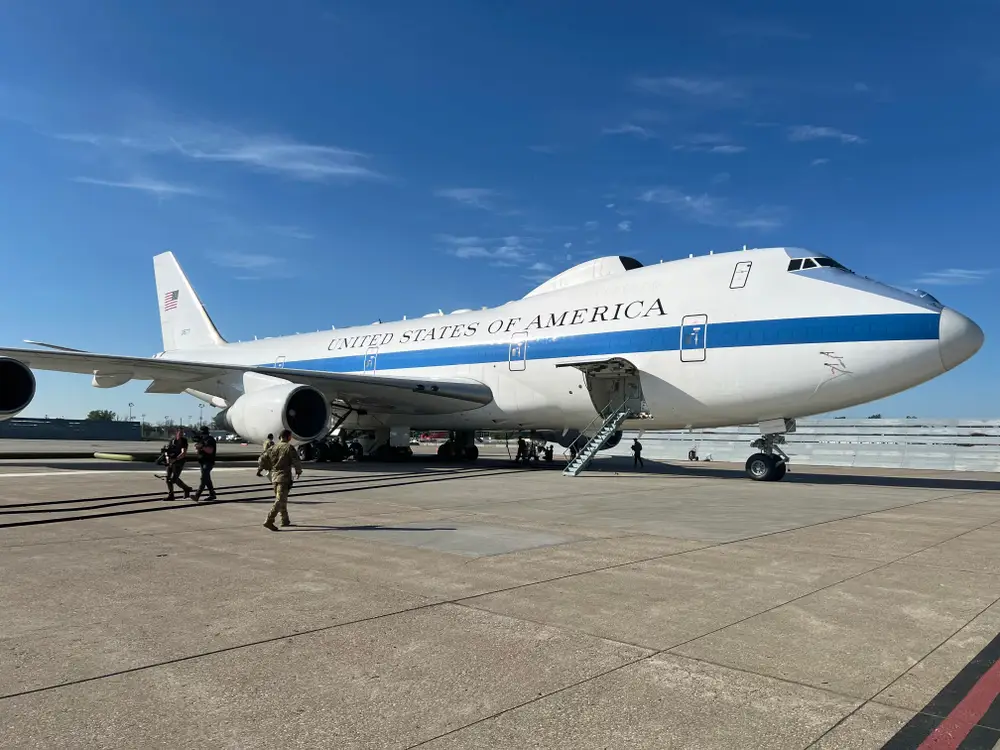
The E-4B “Nightwatch” is also known as the “doomsday plane.”
Air Force One, the US president’s aircraft, is known as the “flying Oval Office” for its ability to function as a state-of-the-art workspace for the commander in chief.
There’s another lesser-known presidential plane that can operate as a “flying war room”: the E-4B “Nightwatch.”
Nicknamed the “doomsday plane” for its ability to survive a nuclear blast, the E-4B is designed to protect the president and other senior officials and function as a military command center in worst-case scenarios. It also transports the Secretary of Defense on international trips.
Many of the E-4B’s features are classified, but the US Air Force has shared some glimpses into its capabilities. Take a look inside the top-secret aircraft.
The E-4B “Nightwatch” is a militarized version of a Boeing 747-200.
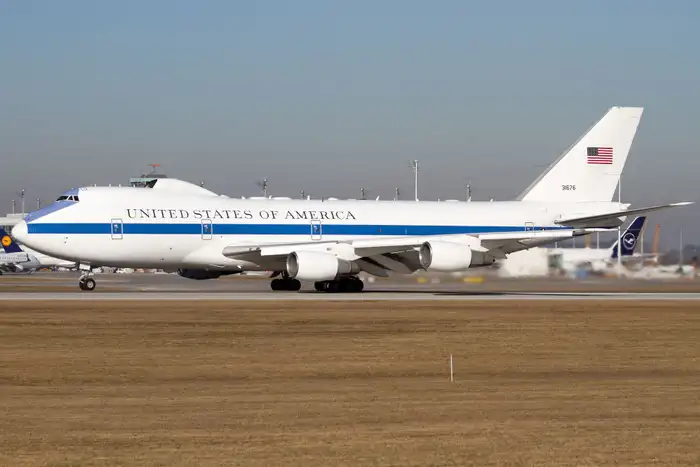
A US Air Force E-4B “Nightwatch” plane.
The US Air Force’s fleet of four E-4Bs comprises the National Airborne Operations Center at Offutt Air Force Base in Omaha, Nebraska.
It costs $159,529 per hour to operate, making it the Air Force’s most expensive plane.
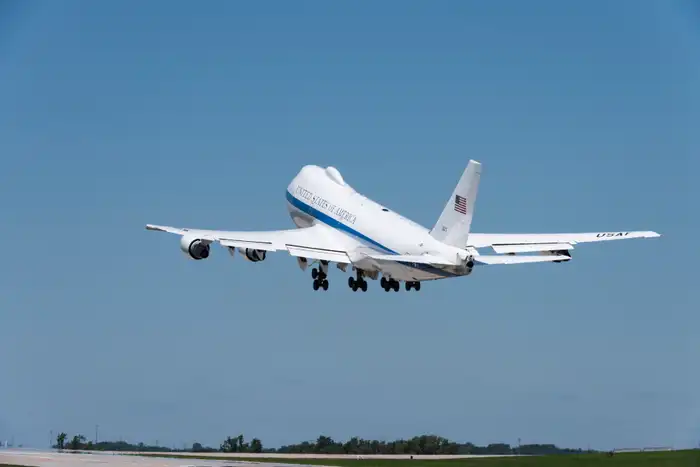
An E-4B at Offutt Air Force Base in Nebraska.
Each E-4B costs $223.2 million to build, according to the US Air Force.
A standard crew consists of 60 people with 15 different specialties.
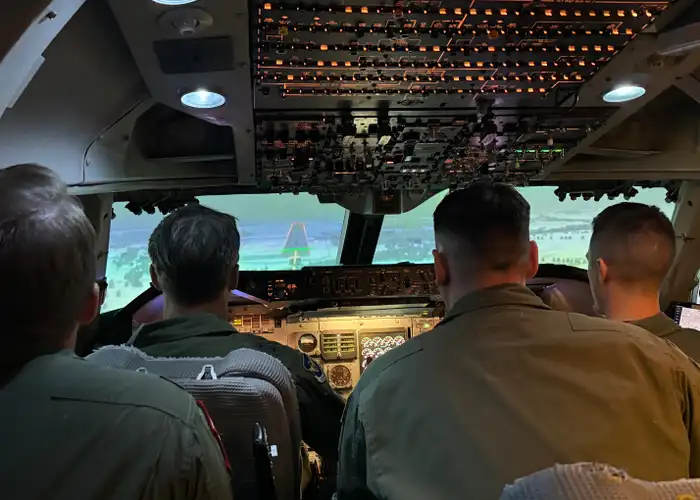
An E-4B simulator training mission.
In 2022, the Air Force debuted a $9.5 million E-4B simulator to train pilots, flight engineers, and other crew members to operate the aircraft, according to the US Strategic Command.
The E-4B can refuel while in flight, allowing it to fly for several days at a time.
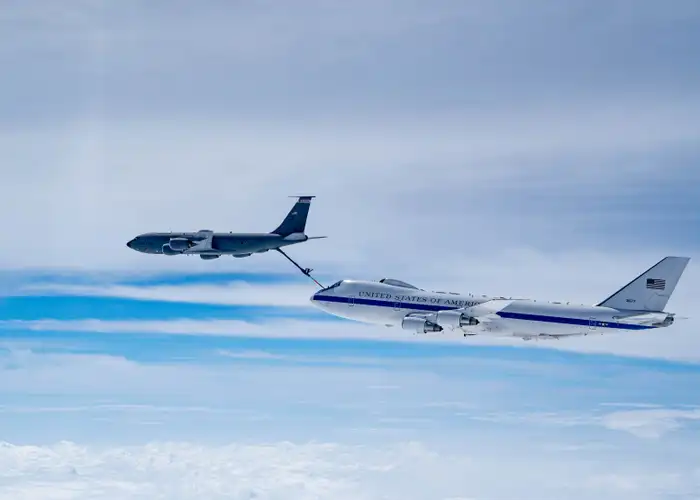
An E-4B can refuel in flight.
The E-4B can fly for 12 hours straight without refueling.
Its communications technology is kept in a bulge on top of the plane called the ray dome.
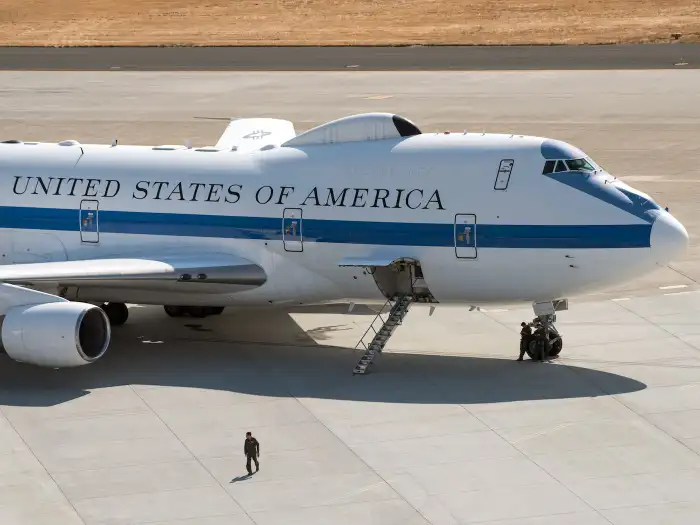
An E-4B aircraft on the tarmac at Travis Air Force Base, California, September 11, 2017
The E-4B possesses more communications capabilities than Air Force One with around 67 satellite dishes and antennas in the ray dome.
The plane’s exterior also features thermal and nuclear shielding, and its electrical system can withstand electromagnetic pulses.
The plane’s main deck features six functional areas.
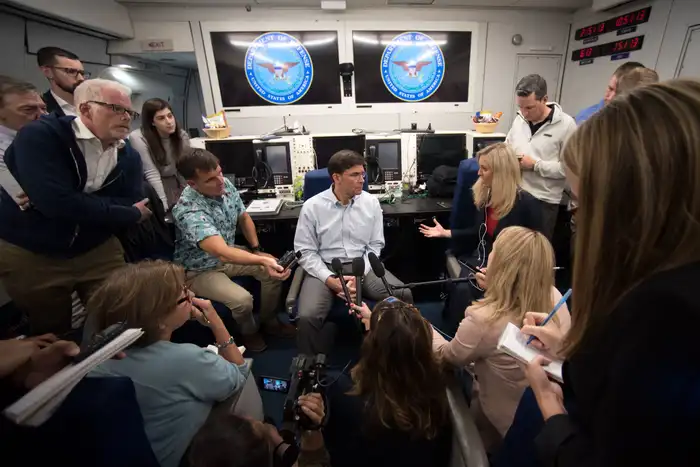
Then-Secretary of Defense Mark T. Esper met with reporters on board an E-4B in 2019.
The layout includes a command room, conference room, briefing room, operations team work area, communications room, and a rest area, according to the US Air Force.
The plane can seat up to 112 people.
In the briefing room, officials update members of the press and conduct meetings with staff.
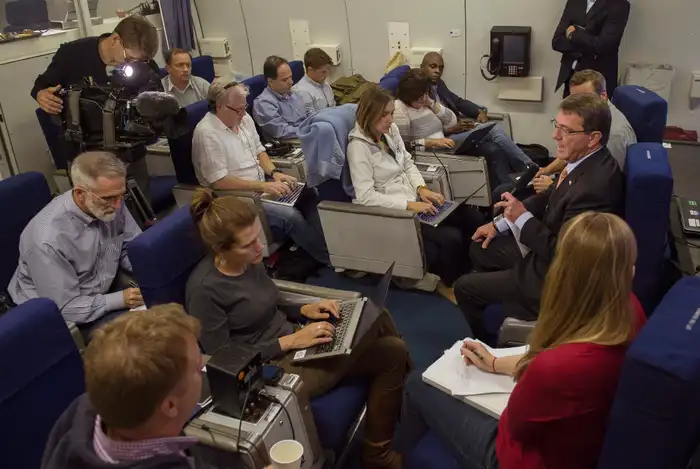
Then-Secretary of Defense Ash Carter met with members of the press while traveling to Europe in 2015.
The E-4B isn’t just a “doomsday plane.” The Secretary of Defense occasionally uses it to travel overseas and hold press briefings.
Located in the center of the plane, the battle staff room is where officers would gather to strategize in a national emergency.
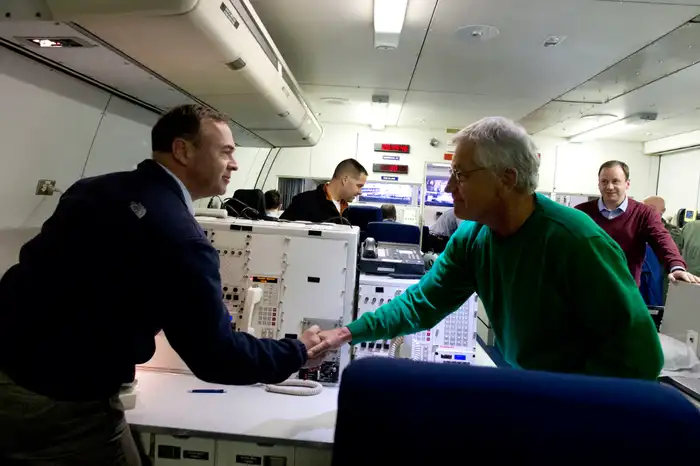
The battle staff room on board an E-4B.
In the event of a nuclear attack or other apocalyptic scenario, the president, secretary of defense, and chairman of the Joint Chiefs of Staff would use the plane as a secure command and control center similar to the Pentagon.
The rest area has 18 crew bunks, while the Secretary of Defense occupies private quarters on international trips.
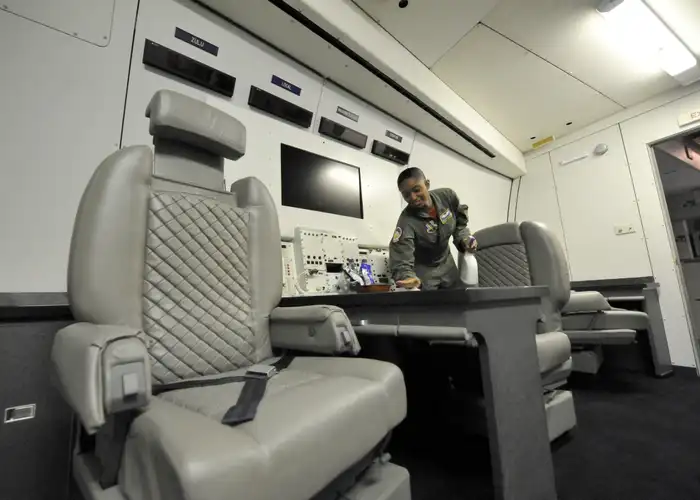
The private quarters on the E-4B.
The Secretary of Defense’s private quarters are furnished with a bunk and a desk with chairs.
The E-4B is staffed and on alert 24 hours a day, seven days a week.
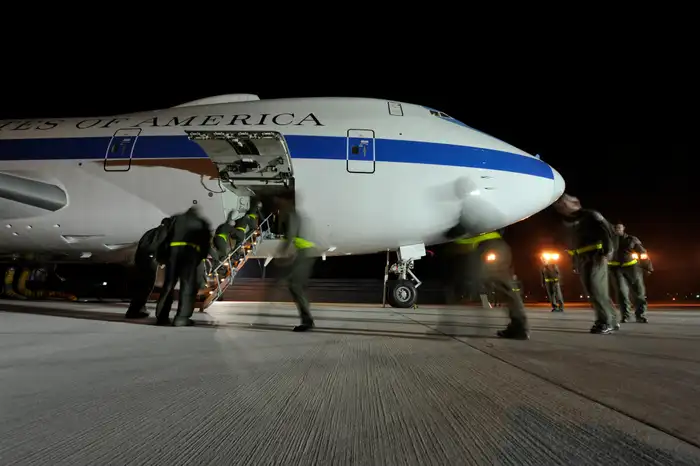
E-4B crew members carry out simulated alert missions.
At least one E-4B has been on continuous alert since 1975, ready to deploy at a moment’s notice.

